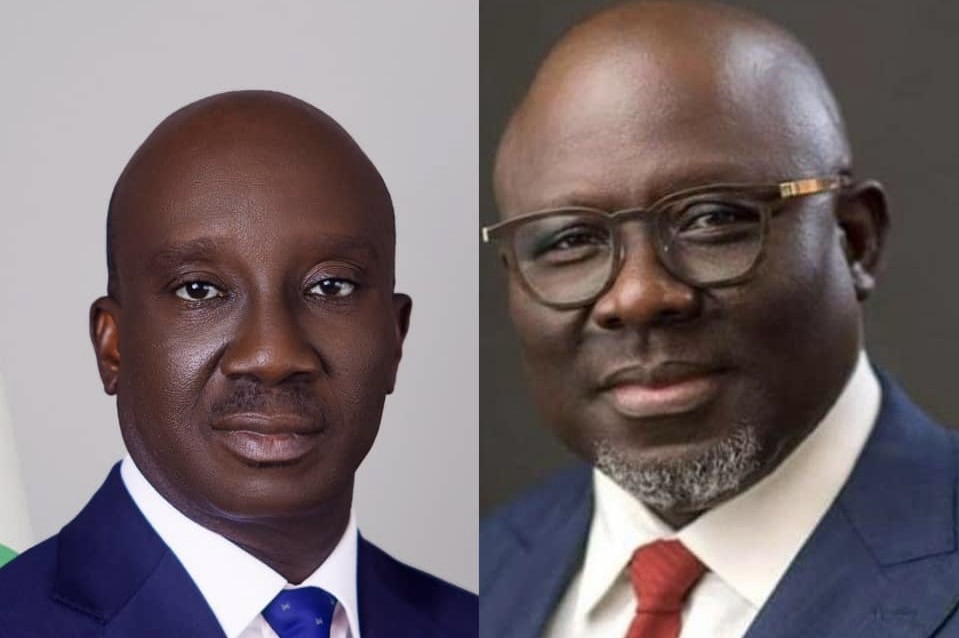It is often said in a popular Nigerian local parlance that if there are too many fragment in gari (cassava flour), the blind would get to know. This has become the lot of Nigerians with the 2016 Federal Government budget brouhaha. First, Nigerians were alarmed shortly after the formal presentation of the 6.3 trillion naira budget by President Muhammad Buhari, himself that the budget was missing!
This was promptly followed by denials from some lawmakers who feel they are closer to Mr. President.
Then the accusations and counter accusations. The blame game was next, buck passing followed and then Nigerians were told again that the missing budget was now found and it was just a matter of copies to be made available to law makers. When law makers got their copies and compared it with notes taken when Mr. President made his presentation, they found out unacceptable variations. The total figure of N6.3 trillion announced by the President suddenly changed to N6.7trillion in the copies shared among NASS members. Again, the uproar and confusion, then a formal admittance by the Federal Government of fraud in the budget process which is currently under investigation.
When the two arms of the National Assembly, met recently they declared that the 2016 budget was full of errors, hence it will not be passed on February 25 as earlier promised. Following the monumental national embarrassment, the Nigeria’s Ministry of Budget and National Planning took responsibility for the situation, saying it understands why the document was full errors. Three points stood out from reasons adduced by the budget office.
First, the ministry said the errors in the 2016 Budget were due to lack of technical knowledge of the bureaucracy on the Zero-Based Budgeting System adopted for the first time in the country to put the appropriation plan together.
Secondly, the Director of Information, Ministry of National Planning Mr. Charles Dafe, said in a statement that civil servants saddled with the task of preparing the budget for their various ministries, departments and agencies were still grappling with some of the technicalities of the new Zero-Based Budgeting approach as it is still new to them.
Thirdly, according to the director, before now, government used the envelope system of budgeting, which has been in use by the Federal Government since 2003 and works by providing each MDA with a maximum amount for its capital and recurrent needs for the fiscal year. This appears to have been jettisoned under the zero budget system. The envelope system, he said is in contrast to the Zero-Based Budgeting approach, which is a system of budgeting that reverses the working process of traditional budgeting by ensuring that all expenses must be justified in the new period.
Adopting zero budgeting for the 2016 is being fingered as a major reason for the budget fiasco. Pure ZBB is not operated by any country at a national scale, but can be adapted in times of recession or after a national disaster or war. It must not be done every year and in every government department. Why are we adopting it this time around? Perhaps because the PDP destroyed the economy and let it as a nation at war. Human development statistics can buttress this further.
Zero-based budgeting requires a justification of expenditure, and has been adopted in times of economic anxiety, and a time when reductions in government spending have had to be made. Zero based budgeting is used in big organisations in the United States to reshape the organisations. If we must get ZBB right, we must get our attitudes right as well. Theoretical Zero Based Budget focuses on short and long-term gains.
We are glad to know that the 2016 Budget proposals submitted to the National Assembly (NASS) by President Muhammadu Buhari, were very well structured and targeted at reviving the economy, notwithstanding the fall in the oil price.
It is therefore disturbing to note that the Ministry of Budget and National Planning, as well as those handling budget issues in all Ministries and Extra Ministerial Agencies (MDAs) are grappling to master the technicalities in the ZBB template to address all irregularities in the budget. Budget is a very serious document because after the nation’s constitution, the next most important legal instrument is the budget.
For a country like Nigeria, which is grappling with how to lift millions out of poverty, this is not the best time for people who have little knowledge of budget process to begin experimentation. But most annoying is the speculation that some officials of ministries made some inputs and are responsible for the national embarrassment.
From the foregoing, the zero budget system must not be used next year. Government must revert back to the envelop system or incremental budgeting next budget cycle.
But for those who may have been responsible for the national embarrassment, it is my considered opinion that they must be made to pay for the national embarrassment. President Muhammadu Buhari should thoroughly investigate those who messed up the 2016 budget, particularly looking into allegations of fraudulent padding of allocations in the budget, with strict orders that all cases of discrepancies, errors and ambiguities be resolved and dealt with accordingly.
The Budget & National Planning ministries must move swiftly to effect the necessary corrections and clean up a copy of the document for parliamentary approval.
· Mr. Dan Owegie is a chieftain of the All Progressives Congress (APC)


